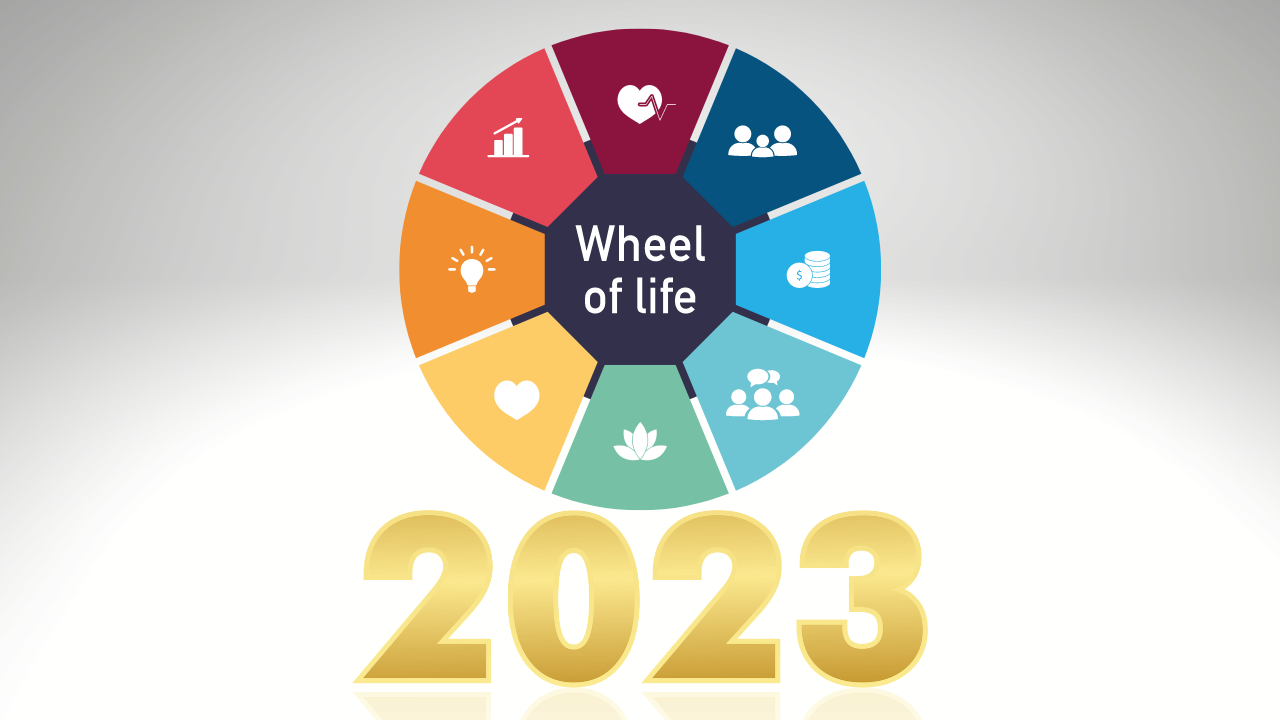The 10th of January has been the traditional start of my new year. As a therapist, the first session of the year for clients is typically devoted to reflection on the year before. This has a natural ripple effect on my own reflections. One big one I had this year is on themes.
I don’t set resolutions. They just aren’t designed for the ADHD brain. The minute I set some arbitrary goal, my inner teenager comes out with thoughts like, “I can’t tell me what to do!” and the self-sabotage begins. Resolutions are not goals for me. Rather they are traps I set for myself.
Last year, I read about theme words for the year. This really resonated with me. A theme word allows space for discovery through feedback after missing the mark. It also allows plenty of opportunities for celebration which my dopamine-chasing mind simply loves.
My theme was “Build”. I wanted to build on my skillset. Build on my knowledge base. Build a bit of muscle mass. Build on the relationships I’ve fostered. It really worked. I obtained my MSc in Occupational Psychology. I am ACC accredited as a coach. I’m building my coaching practice and have delivered more corporate seminars than ever with Educating Matters. Also, when a tragedy was experienced in my close friend group, I was able to utilise the relationships I had to offer and receive support.
This year, I’m taking a coach approach to finding my yearly theme. Many areas of life need different levels and types of attention. One of coaching’s favourite tools is “The Wheel of Life”. This tool breaks life down into 8 categories to help focus on where support is needed and where things are going really well. My clients have enjoyed looking at this and discovering what theme works for them So, here are some questions you might ask for 4 of the 8 sections to find your theme.
Environmental Life
I like to start here as space can set the tone for other areas of life. This is about the space around you that you live and work in every day. In fact, research has shown that spending time on environmental health care lifts mood and even helps with depression.
Questions: Do you need to declutter? Is there visual noise that should be removed? Are you seeing yourself represented in your home décor? Do you have the materials you need for your day at work and home? What could you change that would make your spaces feel better?
Some ideas for themes are: calm, quiet, bright, clean, inviting, flow, mine.
Psychological and Emotional Life
This is about the health of the brain and the thoughts that come from it. Believe it or not, we can choose our thoughts. When we take time to notice our mood and our inner…and sometimes outer monologue, we can make alterations that lead to happiness.
Questions: What do I say to myself about my work, life and appearance? How can I be kind to myself? How do I celebrate achievements? What does my critical voice sound like and how often does it show up? Do I spend more thinking time in the past, present or future?
Some ideas for themes are: mindful, notice, active, intentional, bolster
Emotions are powerful drivers for everything we do, even if we aren’t paying attention. A strange myth has developed that there are good/bad emotions. The truth is that all emotions have value. Some feel more pleasant than others. But, all emotions give information. We need to allow ourselves to experience these emotions so we can learn what information they bring.
Questions: What emotions do I avoid? How do I feel generally about home/work/school/family? What emotions motivate me? Do I experience any emotions longer than necessary?
Some ideas for themes: balance, exploration, listen, monitor
Financial Life
I have a friend who works in pensions. He wishes people paid more attention to this one as it would save a lot of difficulties later in life. Many people shy away from financial awareness as it feels like math class. However, “finances” is one of the top reasons for divorce, mental illness and stress. Leaning past the uncomfortable feeling can bring long-term security and relieve short-term anxiety.
Questions: What financial obligations do I have each month? What is my credit score? Where is my pension and how do my contributions manifest for retirement? What is my weekly/monthly/yearly budget for my household? What updates do I need to make to my will to protect my family?
Some ideas for themes: awareness, control, build, grow, manage
Intellectual Life
Our brains need stimulation or they become lazy and flabby. One of the ways we can reduce the impacts of ageing on our brain is by making intellectual exercise part of our lives. This could be something as easy as sudoku or crossword puzzles. Even 5 minutes per day can yield a healthier, happier brain.
Questions: What do I want to learn about? What books could I read for pleasure and learning? How should I evaluate the amount of screen time (including TV and social media) I use each day? What do I need to avoid as a blocker to intellectual health?
Some ideas for themes: wonder, active, learner, detective, passionate
Looking at the wheel of life and spending some time asking questions can fine-tune a theme for the year. This is not always a daily practice in every area. However, spending a few minutes a week reflecting on your chosen theme in each area will help keep you on track. Remember, this is not an exercise in shame. Rather it is an exercise in choosing and taking control of how you want 2023 to show up in the history of your life.
Gwen Jones

